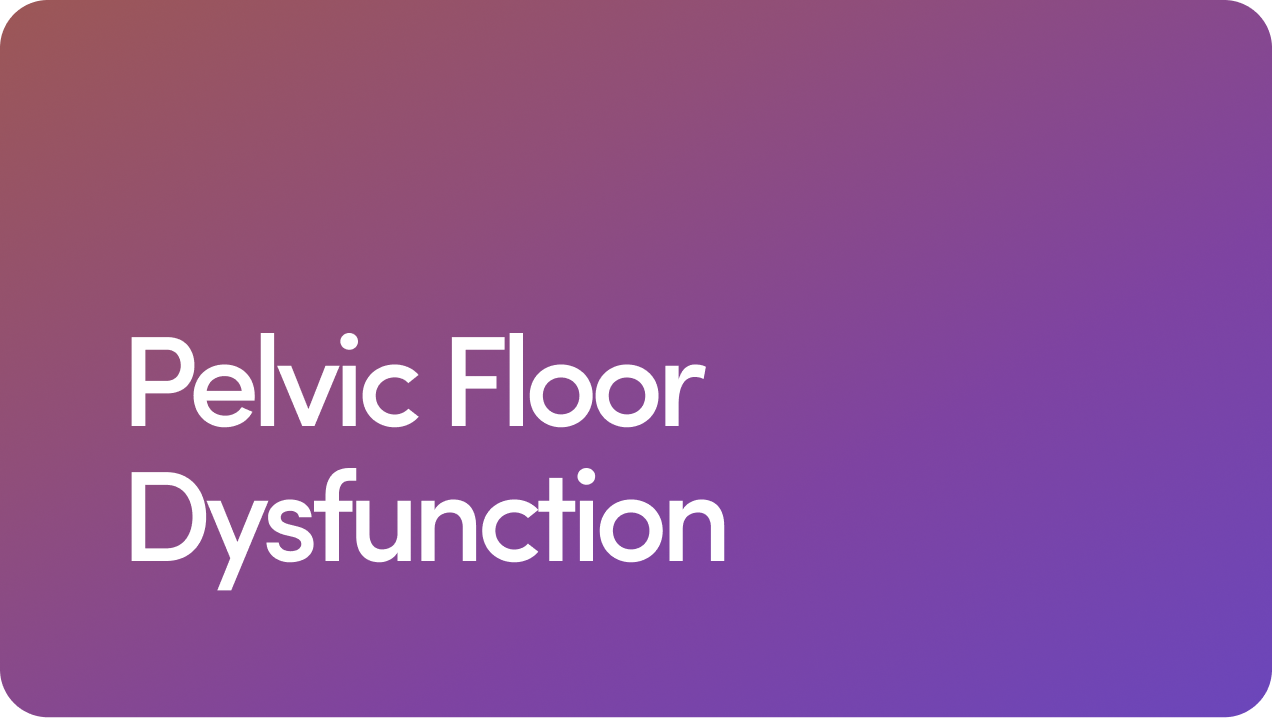Content
Enjoy sex like you used to
Is It Embarrassing When a Guy Can’t Get It Up?

The hard truth for anyone wondering is that even the most confident guys can (and often do) feel embarrassed when they can’t get an erection.
It’s awkward, it’s a disappointment for everyone involved and — if it becomes a pattern — it can also be a sign that there may be some health issues to address.
How any erectile issues affect your relationship is really up to you and your partner. Erectile dysfunction (ED) can either be a rock in the path that you can get around, or a snowball at the top of a hill that only gets bigger. How you and your partner handle it will play a large part in determining the size of the obstacle ahead.
We think this is all part of the reason why it’s worth examining why men feel embarrassed when they can’t get hard, who’s to blame when it comes to ED, why it happens in the first place and — critically — how to deal with it.
To start, let’s look into the psychology of a guy when he’s experiencing ED.
Content
While every man is different, it’s safe to say that ED is a big deal to even the most zen of men. If a man can’t get or maintain an erection, he’ll experience a range of emotions: worry, shame, embarrassment and, perhaps, a sense of failure. Men are expected to perform every time.
As women, men and nonbinary folks eventually learn, this isn’t always the case; it’s perfectly normal for men not to have a 100 percent success rate. Still, this knowledge doesn’t necessarily stop a guy’s instinct to feel like a failure when he can’t get it up. And if this happens a handful of times, there’s a chance his stress around his inability to perform becomes a self-fulfilling prophecy.
No man likes to consider the possibility that he may not be able to perform in an intimate situation. After all, your manhood, so to speak, is a significant part of your identity, and, sometimes, failing to get a hard on can make some men question their self worth. But clinical terminology and treatments often negate the equally important mental health side of things.
And that’s why the most important thing for everyone involved to understand is that it’s not his fault, your fault or anyone else’s fault.
Why Can’t He Get Hard: Causes
So, what’s happening when a man is struggling to get a hard on?
Erectile dysfunction is a condition in which the proper erectile function of a man’s penis is interrupted, prevented or fizzles out because of insufficient blood flow. It can be caused by any number of things, from poor exercise and dietary habits to certain diseases and health conditions. Even a man’s mental health can cause ED.
There are a number of reasons one might lose an erection, including:
Heart disease and other health conditions that affect blood flow
Hormone imbalances such as low testosterone levels
Medications and recreational drugs with unintended side effects on sexual health
Weight and obesity problems
A lack of sleep or exercise
Poor diet
Depression and other psychological causes of ED
Painting a portrait of the ED experience isn’t difficult, but painting a portrait of the person who has ED is a lot harder than you might expect. Many men experience ED — at many different ages and stages of life. A study published in the Journal of Sexual Medicine suggests that one out of every four new patients with ED is under the age of 40. So young men, while known for their high sex drive, aren’t exempt from this condition.
Many men are likely to experience erectile issues at some time in their life, and those who repeatedly find themselves flaccid can end up with self-esteem issues, performance anxiety and other long-term effects on their mental health. And guess what? Science says these can exacerbate or cause ED in and of themselves. It’s all a bit unfair.
While these are the long-term factors for ED — there are also day-to-day triggers.
Causes of Short-Term Erectile Dysfunction
Even if your partner has never experienced ED in your presence (or anyone else’s) before, there are several ways ED can be triggered by something as simple as a particularly bad day.
Common examples of short-term ED triggers include:
Stress. Stress can keep him from focusing on the situation at hand. Plus, if he’s had erectile issues in the past, performance anxiety in future encounters can be a source of stress in and of itself.
Alcohol. While having a drink or two may relax him and lower his inhibitions, drinking too much might prevent him from performing sexually. He may also find that alcohol contributes more significantly to erectile issues as he gets older.
Fatigue. Sometimes his body is simply too tired for sex. Fatigue can not only decrease his ability to perform sexually, but it may also lower his desire for sex – this is particularly true if you two typically have sex at night.
Drugs. Many over-the-counter medications like cold medicine, pain relievers and sleep aids can contribute to short-term ED, as can some prescription drugs for blood pressure, depression or anxiety. Read the fine print on the packaging to see whether a drug he’s taking could be contributing to ED. By the way, this also includes tobacco, which has been linked to ED in many studies.
Inexperience. Sometimes an inability to perform is simply a matter of experience. If he’s still learning about what you do and don’t enjoy in a sexual setting, it can deflate his erection. Like anything in life, great sex takes time and practice.
While many men can become defensive when something upsetting happens, others like to pretend it never happened at all. Neither of these strategies are great coping mechanisms, whether we’re talking ED or something else.
If your partner internalizes his feelings and acts like the problem never occurred, communication is the first and most important step in the process.
If he’s struggling to maintain an erection often, it’s important that he speaks to his healthcare provider to get diagnosed and figure out the right treatment options, which may include:
Psychological counseling
Dietary and lifestyle changes
Addressing other health issues, like heart disease
Before, during and after that, however, there are a number of things you both can do to avoid embarrassment, deal with the problem and build trust:
Try not to panic. ED is a treatable condition, and it may even be short-lived. Panic can lead to anxiety, which may make things temporarily worse.
Have a conversation about it. Talk to your partner about what’s going on, normalize it and remember not to place or suggest blame. Support will help him get treated faster; blame or shame could do the opposite.
Don’t internalize any negative feelings. Nobody is to blame here: You are not unattractive and he is not rejecting you. In short, ED has nothing to do with your partner’s opinions of you. The sooner you realize this, the sooner you can return to being an ally and begin dealing with ED in your relationship.
Be patient. Medication may take time to work. Therapy may take time to work. Getting the courage to go talk about the problem with a healthcare provider may take him time. While you very well may be back to great sex the next morning, it might not be so simple, so remember to be kind.
Am I Why He Can’t Get Hard?
We’ve mentioned it before, but it’s worth emphasizing again: The truth is that ED is no one’s fault.
ED has nothing to do with whether or not he’s attracted to you, and he’s not causing his own ED by neglecting his sexual health or mental health.
While you may be quick to point to any number of ways these potential causes seem preventable, the fact is that no guy chooses — willingly or unwittingly — to have ED. Furthermore, nobody can cause ED in a way that would delineate “fault.”
This is a blameless condition — it just happens. How do we know this? Because not a single study of ED patients showed any of them being “happy” or “satisfied” with their lack of erectile function.
ED isn’t a blame game — it’s a problem to solve and requires teamwork, patience and compassion.
When medical professionals talk to a man about his sex life, they tend to forget that there’s a human being behind the biological and chemical problems that he may be experiencing. In all the talk of blood vessels, heart disease, the side effect risks of medication and men’s health in general, it’s easy for doctors and nurses to forget the embarrassment element of ED treatment.
Instead of closing yourself off (or letting him shut down), offer support and gently talk to him about what’s going on.
Remember:
This may be the first time and may be the last time — occasional ED isn’t necessarily a sign of anything other than stress or fatigue.
If he’s struggling repeatedly with ED, erectile dysfunction treatments, including medication and online therapy with a sex therapist, are available to him. We even make discreet chewable ED meds hard mints with the same generic ingredients as those of Viagra (sildenafil), Cialis (tadalafil) and other ED medications.
Remember that simple changes to your intimate times might help. Fun foreplay, new sex positions or sex toys like vibrators make more than the spice level go “up.” And they can help you enjoy things even if he’s not getting hard enough to penetrate.
If you’re trying to learn more about erectile dysfunction to support him, check out our blogs for more tips, including how to get “hard.”
If nothing else, just remember to show them love, compassion and support. That’s what sex is about anyway, right?
9 Sources
- Kovac, J. R., Labbate, C., Ramasamy, R., Tang, D., & Lipshultz, L. I. (2015). Effects of cigarette smoking on erectile dysfunction. Andrologia, 47(10), 1087. https://www.ncbi.nlm.nih.gov/pmc/articles/PMC4485976/.
- Arackal, B. S., & Benegal, V. (2007). Prevalence of sexual dysfunction in male subjects with alcohol dependence. Indian journal of psychiatry, 49(2), 109–112. https://www.ncbi.nlm.nih.gov/pmc/articles/PMC2917074/.
- Mollaioli, D., Ciocca, G., Limoncin, E., Di Sante, S., Gravina, G. L., Carosa, E., Lenzi, A., & Jannini, E. A. F. (2020). Lifestyles and sexuality in men and women: the gender perspective in sexual medicine. Reproductive biology and endocrinology : RB&E, 18(1), 10. https://www.ncbi.nlm.nih.gov/pmc/articles/PMC7025405/.
- U.S. Department of Health and Human Services. (n.d.-f). Symptoms & causes of erectile dysfunction - NIDDK. National Institute of Diabetes and Digestive and Kidney Diseases. https://www.niddk.nih.gov/health-information/urologic-diseases/erectile-dysfunction/symptoms-causes.
- U.S. Department of Health and Human Services. (n.d.-g). Treatment for erectile dysfunction - NIDDK. National Institute of Diabetes and Digestive and Kidney Diseases. https://www.niddk.nih.gov/health-information/urologic-diseases/erectile-dysfunction/treatment.
- Al-Shaiji T. F. (2022). Breaking the Ice of Erectile Dysfunction Taboo: A Focus on Clinician-Patient Communication. Journal of patient experience, 9, 23743735221077512. https://www.ncbi.nlm.nih.gov/pmc/articles/PMC8808006/.
- Panchatsharam PK, Durland J, Zito PM. Physiology, Erection. [Updated 2023 May 1]. In: StatPearls [Internet]. Treasure Island (FL): StatPearls Publishing; 2023 Jan-. Available from: https://www.ncbi.nlm.nih.gov/books/NBK513278/.
- Velurajah, R., Brunckhorst, O., Waqar, M., McMullen, I., & Ahmed, K. (2022). Erectile dysfunction in patients with anxiety disorders: a systematic review. International journal of impotence research, 34(2), 177–186. https://www.ncbi.nlm.nih.gov/pmc/articles/PMC8964411/.
- Liu, Q., Zhang, Y., Wang, J., Li, S., Cheng, Y., Guo, J., Tang, Y., Zeng, H., & Zhu, Z. (2018). Erectile Dysfunction and Depression: A Systematic Review and Meta-Analysis. The Journal of Sexual Medicine, 15(8), 1073-1082. https://www.sciencedirect.com/science/article/pii/S1743609518310075?via%3Dihub.
Editorial Standards
Hims & Hers has strict sourcing guidelines to ensure our content is accurate and current. We rely on peer-reviewed studies, academic research institutions, and medical associations. We strive to use primary sources and refrain from using tertiary references. See a mistake? Let us know at [email protected]!
This article is for informational purposes only and does not constitute medical advice. The information contained herein is not a substitute for and should never be relied upon for professional medical advice. Always talk to your doctor about the risks and benefits of any treatment. Learn more about our editorial standards here.
Mike Bohl, MD
Education
Bachelor of Arts, Egyptian and Ancient Western Asian Archaeology - Brown University | College, 2011
Doctor of Medicine - Brown University | Warren Alpert Medical School, 2017
Master of Public Health - Columbia University | Mailman School of Public Health, 2018
Master of Liberal Arts, Journalism - Harvard University | Harvard Extension School, 2022
Master of Science, Healthcare Leadership - Cornell University | Weill Cornell Graduate School of Medical Sciences, 2024
Master of Business Administration - Cornell University | Samuel Curtis Johnson Graduate School of Management, 2024
Training
Internship - NYU Grossman School of Medicine | Internal Medicine Residency—Community Health Track, 2019
Medical License
New York, 2019
Certificates & Certifications
Certified in Public Health - National Board of Public Health Examiners, 2018
Medical Writer Certified - American Medical Writers Association, 2020
Editor in the Life Sciences - Board of Editors in the Life Sciences, 2020
Certified Personal Trainer - National Academy of Sports Medicine, 2022
Certified Nutrition Coach - National Academy of Sports Medicine, 2023
Board Certified Medical Affairs Specialist - Accreditation Council for Medical Affairs, 2023
Certificate of Advanced Education in Obesity Medicine - Obesity Medicine Association, 2025
Regulatory Affairs Certification - Regulatory Affairs Professionals Society, 2025
Affiliations & Memberships
Specialties & Areas of Focus
General Practice
Previous Work Experience
Medical Expert Board Member - Eat This, Not That!, 2021–
Director Scientific & Medical Content - Stealth Biotech PBC, 2023–2024
Director, Medical Content & Education - Ro, 2021–2023
Associate Director, Medical Content & Education - Ro, 2020–2021
Senior Medical Writer - Ro, 2019–2020
Medical Editor/Writer - Sharecare, 2017–2020
Medical Student Producer - The Dr. Oz Show, 2015–2016
Research Affiliate - University Hospitals of Cleveland, 2013–2014
Publications & Research
Title: Biomechanical evaluation of a novel suturing scheme for grafting load-bearing collagen scaffolds for rotator cuff repair
Published in: Clinical Biomechanics
Date: 2015
URL: https://www.clinbiomech.com/article/S0268-0033(15)00143-6/abstract
Title: Pelvic incidence and acetabular version in slipped capital femoral epiphysis
Published in: Journal of Pediatric Orthopaedics
Date: 2015
Title: Relationship between pelvic incidence and osteoarthritis of the hip
Published in: Bone & Joint Research
Date: 2016
URL: https://boneandjoint.org.uk/Article/10.1302/2046-3758.52.2000552
Title: Effects of PDGF-BB delivery from heparinized collagen sutures on the healing of lacerated chicken flexor tendon in vivo
Published in: Acta Biomaterialia
Date: 2017
URL: https://www.sciencedirect.com/science/article/pii/S1742706117305652
Media Mentions & Features
Dr. Bohl’s medical expertise is regularly featured in consumer health media:
Eat This, Not That!: Contributor and Medical Expert Board Member on nutrition and wellness topics
The Dr. Oz Show: Behind-the-scenes contributor to Emmy Award-winning health segments
Sharecare: Public-facing health writer, simplifying complex medical issues for millions of readers
Why I Practice Medicine
Dr. Bohl developed a passion for medical content while working at The Dr. Oz Show. He realized that, through the media, he could bring important health information to the lives of many more people than he would be able to working in a doctor’s office.
Hobbies & Interests
Biking, resistance training, sailing, scuba diving, skiing, tennis, and traveling
Related Articles
Related Conditions
 Erectile Dysfunction
Erectile Dysfunction
 Premature Ejaculation
Premature Ejaculation
 Low Testosterone
Low Testosterone
 Retrograde Ejaculation
Retrograde Ejaculation
 Pelvic Floor Dysfunction
Pelvic Floor Dysfunction
 Anorgasmia
Anorgasmia